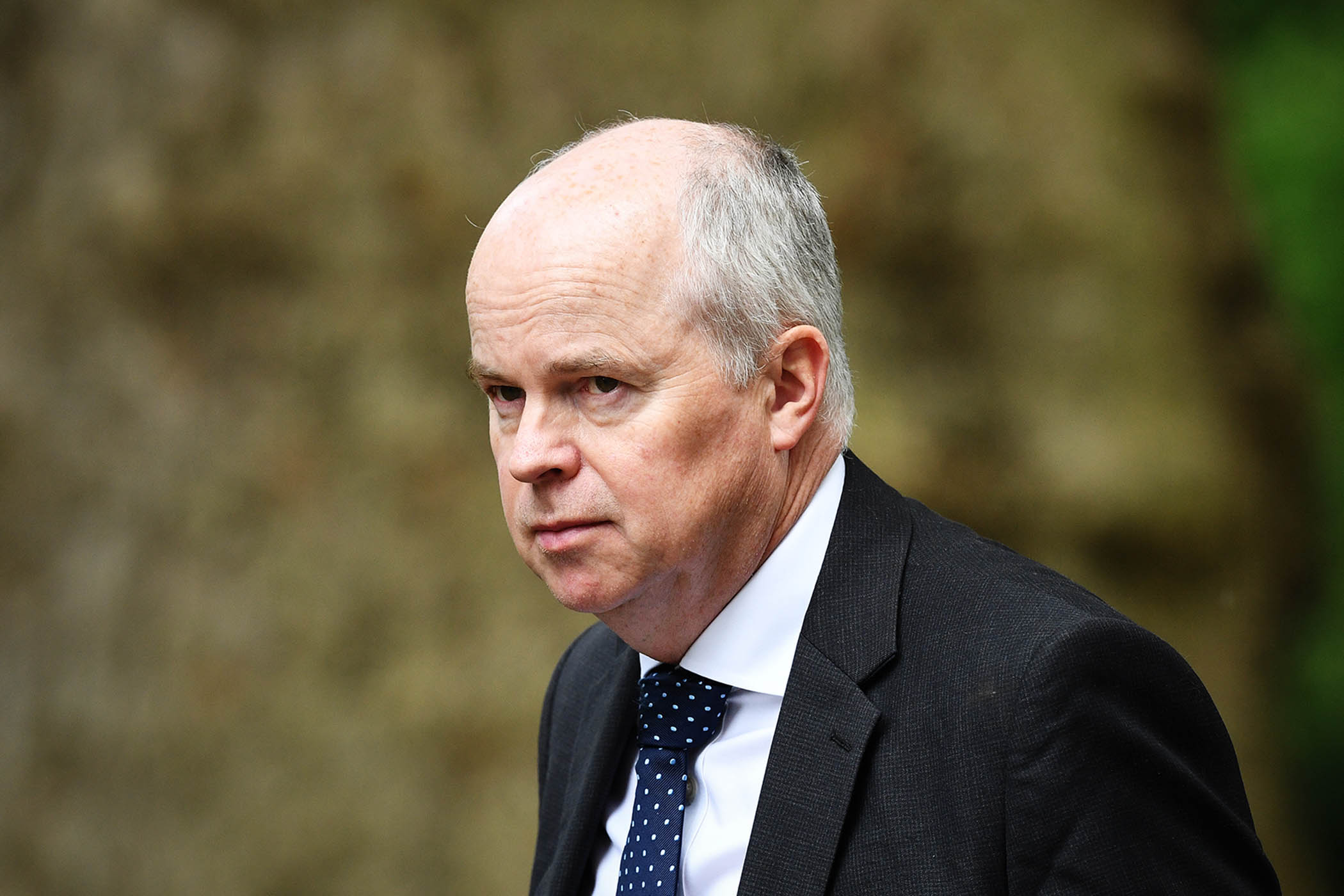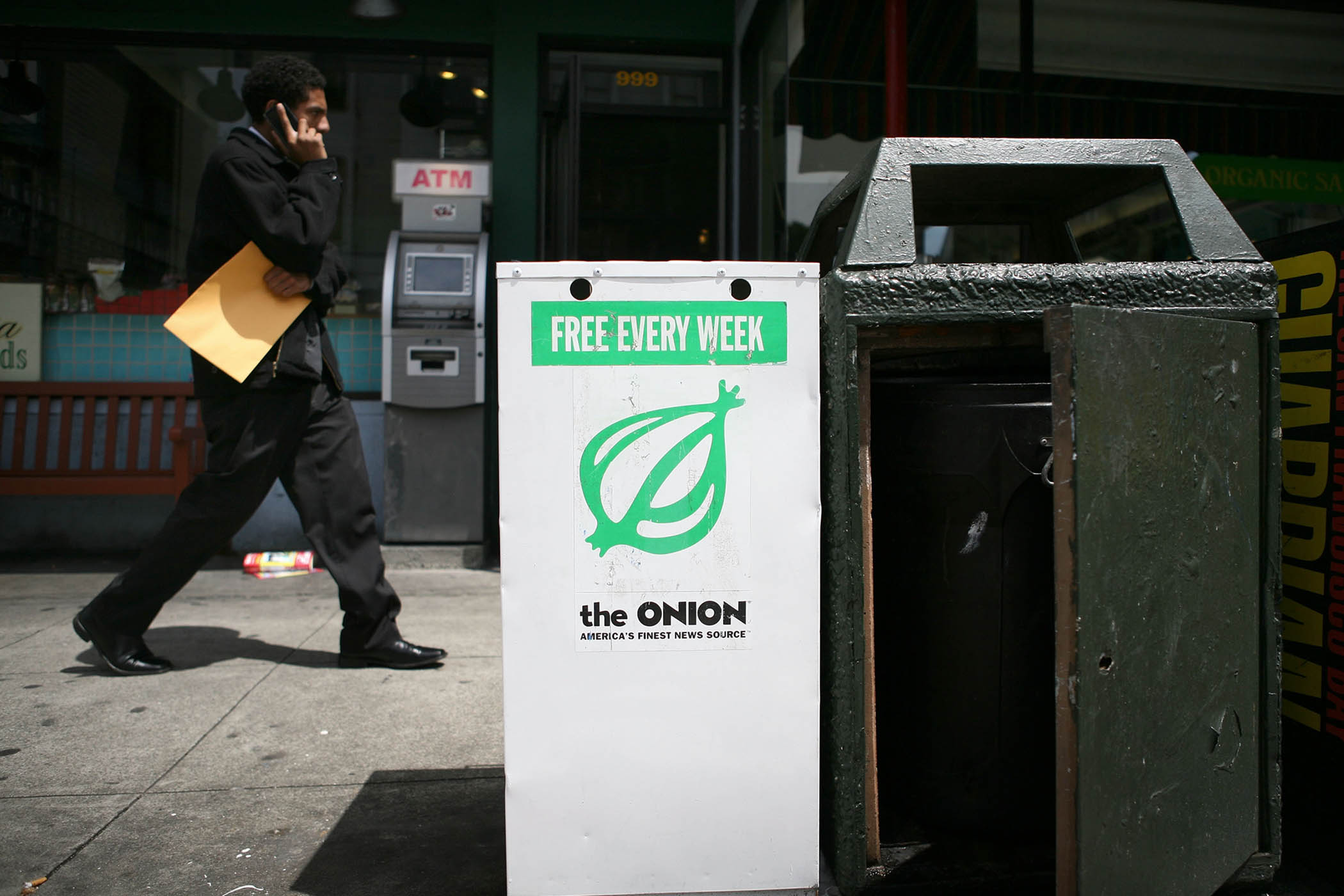Was it a coup? Was there, as suggested by David Yelland, the podcast host and former editor of the Sun, a group of shadowy rightwing plotters who worked to decapitate the two top executives in the BBC? Are they toasting their success as the defeated figures of director general Tim Davie and head of news Deborah Turness slope off to the exit door?
Yelland’s claim is that the BBC board has been undermined and “elements close to it have worked with hostile newspaper editors, a former PM and enemies of public service broadcasting”.
If so – and the truth is, we don’t know – you may be sure that the figure at the heart of it is Sir Robbie Gibb, a self-confessed “proper Thatcherite Conservative” who, despite being a recovering Tory spin doctor, somehow managed to get himself a seat at the very heart of BBC editorial scrutiny.
In his view, the BBC is too woke by half, and his unrelenting mission is to cure it. The Observer quoted him as saying that if he didn’t get his way, he would “blow the place up”. In this single-minded pursuit, he has become a rather feared figure in Broadcasting House – and now that Davie and Turness have walked the plank, even more powerful.
Gibb has zigzagged between politics and journalism for much of his career. He started as a BBC political researcher before defecting to work for the Conservatives. He backed Michael Portillo’s failed leadership bid in 2001 before returning to the BBC for a variety of roles in political programming. “He was operating across two power bases – on the BBC and with the Tory party and the government,” said one former close associate. “He didn’t see there would be a conflict in being engaged in Tory party politics at the same time as being a very senior BBC person.”
In 2017 he jumped ship once again to be Theresa May’s director of communications at No 10. When that enterprise came crashing down he was rewarded with a knighthood and, apart from a short spell advising GB News, seemed destined to spend the rest of his days working in corporate PR for a company called Kekst CNC.
But it is one of the oddities of the BBC’s constitution that five of its 13-strong board of directors are appointed by the government of the day. Gibb was encouraged to apply for a vacancy in 2020, by which time Boris Johnson was prime minister. The Telegraph’s well-informed correspondent Christopher Hope (now working at GB News) reported that Gibb was being “groomed” by ministers to get himself on the BBC board – even mooting the idea that he could be chair.
The interview panel included one Samir Shah, later to be appointed BBC chairman. The Johnson government was only too happy to have Gibb installed as the member for England in May 2021. He joined a body notably thin on journalistic experience: the majority of his new colleagues came from business, legal or finance backgrounds. That factor alone gave Gibb an outsized voice on editorial issues.
Related articles:
On a visit to the Newsnight office [Gibb] told staff that if they wanted to peddle their own agenda they should ‘get stuffed and leave’
On a visit to the Newsnight office [Gibb] told staff that if they wanted to peddle their own agenda they should ‘get stuffed and leave’
Gibb soon found himself as a member of the curious but powerful five-person editorial guidelines and standards committee (EGSC), which oversees editorial standards and guidelines at the corporation. Three of the members were insiders (the chair, the director general and the head of news), and two outsiders. Sir Nicholas Serota, former Tate director with no experience of journalism, was one of those. The other was Gibb, who was thus the only external director with any experience as a journalist. The BBC was his oyster.
Pretty soon he was throwing his weight around in ways that backfired. On a visit to the Newsnight office he told staff that if they wanted to peddle their own agenda they should “get stuffed and leave”. The journalists responded by leaking a record of the bollocking to the New Statesman.
Newsletters
Choose the newsletters you want to receive
View more
For information about how The Observer protects your data, read our Privacy Policy
Next he reportedly tried to block a leading candidate for a news position on the grounds that he regarded the candidate – Jess Brammar from the Huffington Post – as too politically partial in public, having voiced her feelings about Brexit on Twitter. He texted Fran Unsworth, the then head of news, to tell her that if she went ahead with the appointment, the Johnson government’s “fragile trust in the BBC will be shattered”. The Financial Times was pleased to report the exchange, and Brammar was duly appointed as editor of the BBC News and BBC World channels.
By now there was some alarm at the behaviour of a figure whose interventions appeared to many to compromise the BBC’s independence. The other directors for the regions appointed by government (three business leaders, one broadcaster) generally kept a low profile. Here was the government’s own English region nominee for the BBC board trying to block the appointment of someone the government wouldn’t consider “sound”. It happens in Poland, but surely not in Britain?
But then came an extraordinary episode. As reported in The Plot: The Political Assassination of Boris Johnson, the 2023 book by the former culture secretary Nadine Dorries, Gibb tried to intervene in the appointment of the chair of Ofcom, the body that ultimately regulates the BBC. It goes without saying that it would be wholly improper for someone working for a regulated body to play any part in picking the regulator.
In the same book, Dorries nevertheless described how Gibb took her aside after a cabinet meeting in early 2022 to try to persuade her to appoint Lord Stephen Gilbert, a former Conservative party functionary, to the role overseeing the BBC’s impartiality. “They [Gibb and others] were asking me to bypass all these factors in order just to put the person that they could control in place,” she told me, when I inquired about the incident.
Dorries considered Gilbert unappointable and looked at the composition of the panel that, she said, had rated him equally with Lord Michael Grade, a veteran TV executive. (There is an archaic scoring system.) She wrote: “A panel member was Michael Simmonds, who is the husband of MP Nick Gibb and is Robbie Gibb’s brother-in-law.
“Another was a lobbyist called Michael Prescott, described by the Financial Times as a ‘friend of Robbie Gibb’.”
The plot, you might say, thickens.
Prescott, who has spent 24 years working in corporate PR after a stint as political editor of the Sunday Times, later became an editorial adviser to the EGSC. It was his “dossier” of complaints that eventually led to the resignations of Davie and Turness.
Dorries writes that she was so outraged at what she viewed as the skulduggery going on to get Gilbert the job that she warned Johnson what was happening. If you wonder whether Dorries is a reliable witness in all this, I should add that none of the above was denied by anyone I contacted – including Gibb, figures at the BBC and Downing Street. The BBC’s response was that nothing Gibb did was “in breach of the Board’s Code of Practice”.
To top all this, there is the strange and secretive story of how Gibb came to own the Jewish Chronicle, a venerable paper that was facing bankruptcy until, in April 2020, Gibb swooped in with a consortium to purchase it.
Gibb has never revealed who put up the money to buy and run the paper, but he soon installed the former Telegraph and Daily Mail journalist Jake Wallis Simons, who succeeded Stephen Pollard as editor.
None of this is evidence of a Gibb-led ‘coup’ … but it does paint an extraordinary picture of the influence of one government appointee
None of this is evidence of a Gibb-led ‘coup’ … but it does paint an extraordinary picture of the influence of one government appointee
Wallis Simons launched a long campaign for a parliamentary inquiry into the BBC’s coverage of Jews and Israel. The rival Jewish News questioned the legitimacy of the inquiry (which never produced a report), quoting legal experts “expressing fears it is part of a long-running politicised campaign to pit the Jewish community against the BBC”.
Gibb was by no means a hands-off “owner” of the JC. A former staff reporter, Lee Harpin, recalled that Gibb “made a habit of calling into the office on print days to check up on what stories were topping the news list and offering a view”. Harpin also wrote that he was told that the new owners wanted more views “well to the right of the Tory party”.
A member of Gibb’s consortium to rescue the JC in 2020 told me in April 2024 that he felt that Wallis Simons was “behaving like a political activist, not a journalist”, especially on social media.
By then, the paper had been plagued by ethical and editorial lapses, which led five leading columnists to walk out. The longstanding JC columnist Jonathan Freedland said: “Too often, the JC reads like a partisan, ideological instrument, its judgments political rather than journalistic.”
In September 2024, Wallis Simons published an angry piece by an Israeli lawyer, Trevor Asserson, lashing out at the BBC’s management. Heads should roll, thundered Asserson, who has a particular beef with the BBC’s veteran Middle East correspondent, Jeremy Bowen. “Malevolent, biased journalists should be reprimanded…or dismissed,” he wrote. “BBC management needs to take back control.”
Weeks after Gibb relinquished control of the JC, the paper was mired in a shocking scandal in which it published a fake story from a dodgy source, which is now the subject of a full-blown security investigation into black ops in Israel. Prof Colin Shindler, who had been a contributor for 50 years, quit, writing: “This whole sorry affair reflected the JC’s unquestioning willingness to accept anything that chimed with its sensationalist agenda.”
Within three months, Wallis Simons was gone. The respected former contributor, David Aaronovitch, called it a “monstrous failure of editorial standards”. Gibb escaped blame: he was by then preoccupied with upholding BBC editorial standards.
Why is all this relevant? Because the question of whether the BBC itself is biased against Israel – together with its coverage of the Gaza war – would eventually come before the EGSC on which Gibb is one of two independent members. The Prescott “dossier” insists that the BBC is biased against Israel. The BBC confirmed to me that Gibb does not recuse himself from any discussions about impartiality in relation to coverage of Israel or Gaza.
None of this is evidence of a Gibb-led “coup” at the BBC. But it does paint an extraordinary picture of the influence of one government appointee on the BBC’s processes and judgements.
Will Gibb now help choose the next director general and the next head of news? As a board member he will certainly have a role, and it may be that his influence on the BBC will only grow. In which case, who is to say that David Yelland was wrong?
Alan Rusbridger is a former editor in chief of the Guardian and editor of Prospect magazine. A fuller account of Gibb’s role at the BBC can be found here
Photograph by Leon Neal/Getty Images


